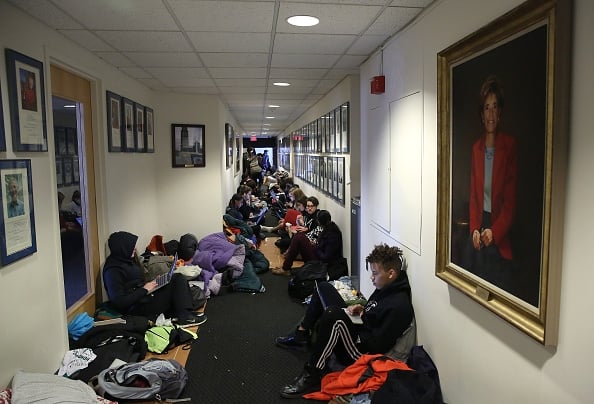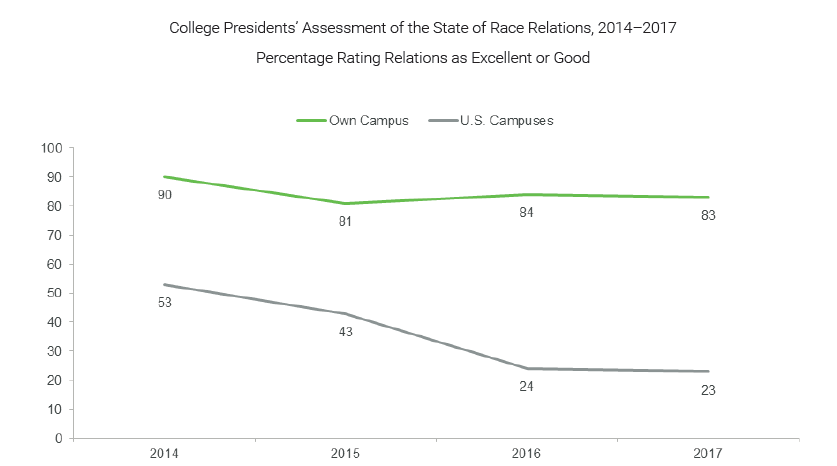You have /5 articles left.
Sign up for a free account or log in.

Sit-in on diversity issues at Brandeis
Getty Images
For several years now, Inside Higher Ed has been asking presidents to evaluate race relations on their own campuses, and also in higher education nationally. During that time period, higher education saw an upswing in the number and intensity of racial protests. And many campuses experienced tensions -- and some reported racial incidents -- in the aftermath of the 2016 presidential election.
But between 2016 and 2017, college presidents in Inside Higher Ed's annual survey of those who lead colleges didn't change their views much about their own campuses.
By large majorities in 2017 (and every year they have been asked), college presidents view race relations on their own campuses as good or excellent. And this is the case even as only a minority say that about higher education nationally. (Most believe race relations on campuses nationally are only fair.)

This year, Inside Higher Ed also asked the presidents if reports of racial incidents had increased on their campuses since the election of Donald Trump. Twenty percent agreed or strongly agreed that they had. But 66 percent disagreed or strongly disagreed.
Shaun Harper, executive director of the University of Pennsylvania Center for the Study of Race & Equity in Education, said that he thinks the presidents are far too confident -- without much basis -- in race relations being good or excellent on their campuses. Harper studies race relations on campuses and consults with many institutions, conducting in-depth interviews with students and others on campus and reporting his findings. These types of discussions, he said, yield information that most presidents apparently miss.
"Unless there is a hate crime, black student protest or some other racial catastrophe on campus that garners national media attention, most college presidents erroneously presume that race relations are generally good," Harper said. "They fail to understand how racial inequities in student performance and persistence, as well as in employee promotion and retention, are symptomatic of pervasive racial problems. As they walk across campus, these presidents somehow fail to see and make honest sense of the often visible patterns of ethnic clustering among student groups."
He said his question for presidents is "How do presidents know that race relations are good on their campuses? Which data sources informed their responses to this particular survey question?" Lack of evidence doesn't mean all is well, he said.
In his experience doing actual individual interviews and focus groups on a wide range of campuses, race relations need to be recognized as troubled and in need of attention, Harper said.
A full report on the survey may be found here.




